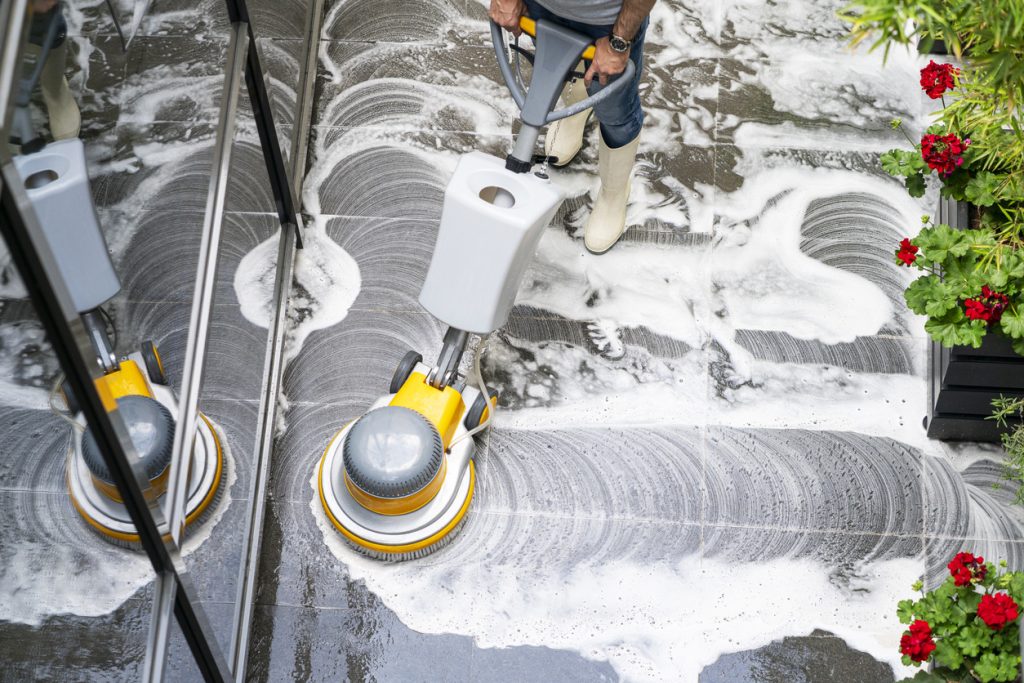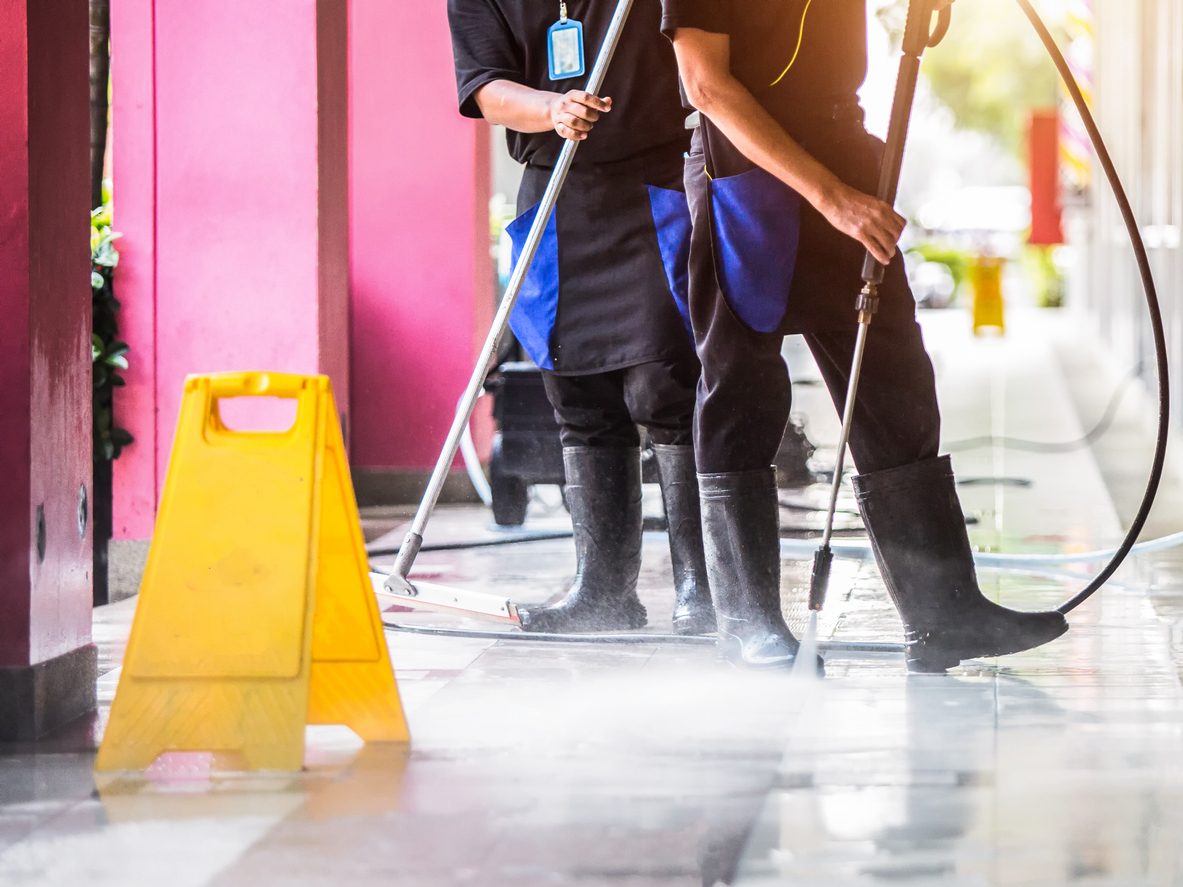One thing is for sure — industrial cleaning is not like your everyday house chores, even though the objective is the same. While most of us understand general housekeeping rules, cleaning industrial facilities is on a whole different level.
The cleaning processes in factories, power plants, and other industrial facilities have a wide range of scope and complexity, making this critical role almost impossible to manage without trained staff.
Plus, there are so many terms for professional cleaning — janitorial services, commercial cleaning, office cleaning — that it can be hard to determine what exactly your facility needs.
Let’s take a look at what industrial cleaning is and the types of services you might need for your situation.
What Does Industrial Cleaning Entail?
In a nutshell, industrial cleaning is the process of cleaning hazardous areas in industrial buildings, including factories, warehouses, and power plants. Tasks can range from sweeping a workshop floor to removing asbestos from an old facility.
A job like this can be dangerous and requires extensive training, knowledge about chemicals, and specialized tools and equipment. For example, certain chemicals require a power vacuum to clean — ordinary janitorial supplies won’t get the job done — and grain silos need more than a Hoover to get them ready for another storage cycle.
While it’s possible for office workers to clean their environment to some extent, it’s often impossible (or at least dangerous) for plant workers to perform the cleaning themselves. Industrial facilities require professional cleaning tailored to their exact needs to run safely and efficiently.
Types of Industrial Cleaning Tasks
If your company requires industrial cleaning services, make sure you hire trained professionals to keep your employees and your facility clean and safe.
Here are some of the specialized cleaning tasks that you may need.
- Contamination removal after a mercury spill: Specialized spill removal techniques to remove mercury vapor and vapor sources. Industrial buildings, warehouses, production, and assembly floors are common locations for mercury leaks.
- Lead abatement and removal: Special chemicals are used to break down different coatings, including lead and lead compounds.
- Removal of asbestos: One of the most common industrial cleaning services since many older buildings include asbestos in their drywall, fireproofing, and other materials.
- Removal and remediation of mold: Not all molds are cause for concern, but some are. These include Stachybotrys mold, Fusarium mold, Cladosporium mold, Penicillium mold, and Aspergillus mold, and they may cause health issues. If you’re having problems with mold, an experienced mold removal professional needs to perform mold and air testing and isolate contaminated areas before removal.
- Hydro-blasting: It’s a high-pressure water blasting process used to remove paint and lead. If you’re doing large-scale mastic or epoxy removal operations on vertical or horizontal surfaces, this is the best tool for the job. It’s often used to remove paint from roadsides, parking lots, and airport runways.
- Decontamination: When a chemical leak occurs in the cosmetics or pharmaceutical business, it can be very hazardous. Professional decontamination services are an essential part of a top-notch industrial cleaning company’s services.
- Industrial-vacuuming: You need an industrial vacuum cleaner to remove hazardous chemicals, metal shavings, grime, and other nasty stuff from the workplace floors. Standard cleaning services cannot remove these contaminants. Industrial vacuum cleaners are the only method to remove debris and impurities from your equipment, walls, and floors.

Is Industrial Cleaning Dangerous?
The job of a professional industrial cleaner requires handling many toxic chemicals and hazardous tools. It also involves exposure to contaminated environments. So, the short answer is yes, it is potentially dangerous.
Many different factors affect whether the chemical causes health issues. Consider the cleaning product’s chemical contents, its usage, storage, ventilation in that area, any splashes and spills, whether the cleaning product comes into direct contact with skin, as well as any mist, vapor, or gas emissions. These are all critical factors, and they need to be considered when determining the level of danger.
Industrial cleaners should be in good health and condition to do the job with the least amount of risk possible.
Are There Special Requirements for Industrial Cleaning?
More than a quarter of the United States has adopted OSHA-approved safety requirements that closely mirror or even match the federal regulations. For the safety of themselves and their coworkers, industrial cleaners need to know how to operate equipment and tools properly and how to safely use and dispose of dangerous chemicals.
Occupational Safety and Health Administration (OSHA) regulations specifically address cleaning dangers.
To keep track of the most commonly cited rules, OSHA compiles an index based on six-digit NAICS numbers. A list of frequently used OSHA standards is available on the OSHA website.
How To Schedule Industrial Cleaning
Now that you have a general idea of what industrial cleaning entails, you can start searching for an industrial cleaning service that will cover all your facility’s needs.
The easiest way to do that is by browsing for cleaning companies around you, asking about their specialties, and getting quotes. To find reputable industrial cleaning companies, you can go through their reviews and choose the one that is best for you.
It’s not an easy task. You need to have a lot of trust in a company if you’re going to trust them with your business.
That being said, it’s crucial to know what to look for in an industrial cleaning company.

